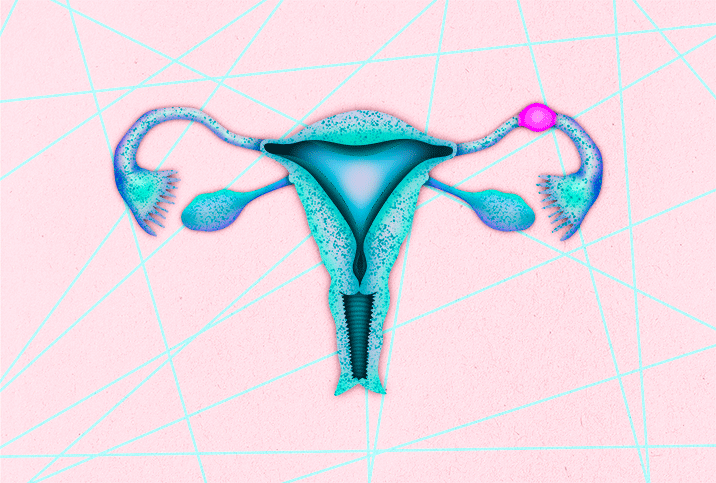Abortion Restrictions Affect Medication Access for the Chronically Ill

The Supreme Court's June 2022 decision on Dobbs v. Jackson Women's Health Organization has had significant, sweeping consequences—and it isn't just pregnant people who have been affected.
A number of individuals with chronic conditions are also bearing the brunt of policy change as some states restrict access to certain medications. These drugs, known as abortifacients, can induce abortion. But some, such as methotrexate, are much more frequently used for purposes entirely unrelated to pregnancy.
What is methotrexate?
Methotrexate is an immunosuppressant, a class of drugs used to slow down an overactive immune system and diminish inflammation. It is also an antimetabolite that inhibits DNA synthesis and cell division. Safe, effective and affordable, methotrexate has been approved by the U.S. Food and Drug Administration (FDA) since the 1980s to treat a variety of chronic conditions including, most commonly, rheumatoid arthritis.
"Methotrexate has been the first-line treatment recommended for chronic, inflammatory conditions, such as rheumatoid arthritis, lupus and psoriasis, for decades," said Daniel Hernandez, M.D., a physician in New York City and the director of medical affairs and Hispanic outreach at CreakyJoints and the Global Healthy Living Foundation.
"It's considered a disease-modifying antirheumatic drug because it can slow joint damage and disease progression over time, which in turn reduces pain and swelling in many people," Hernandez explained.
Women are disproportionately affected by autoimmune conditions, including rheumatoid arthritis, and often experience more severe symptoms.
Doctors can use methotrexate to treat ectopic pregnancy, a condition in which the fertilized egg grows outside the uterus.
Originally developed as a chemotherapy agent, methotrexate is medically approved to treat Sjögren's vasculitis and inflammatory bowel disease (IBD), which includes Crohn's disease. In very high doses, it treats certain forms of cancer, including acute lymphoblastic leukemia and non-Hodgkin lymphoma.
Much less commonly, doctors can use methotrexate to treat ectopic pregnancy, a condition in which the fertilized egg grows outside the uterus, most often in the fallopian tube. Such pregnancies are never viable and, if untreated, can be life-threatening for the pregnant person. Methotrexate is the only medication approved by the American College of Obstetricians and Gynecologists (ACOG) to treat the condition.
When administered to treat ectopic pregnancy, methotrexate is given as an injection, Hernandez explained. People who take it for chronic conditions require "a very different, longer-term dosing schedule," he said.
The drug is not used in elective medication abortions, which involve mifepristone and misoprostol. Nonetheless, some states with restrictive reproductive health policies have grouped methotrexate with other drugs that can be used to induce an abortion, thereby restricting its use.
While methotrexate is by far the most ubiquitous abortifacient, others can also be used for conditions unrelated to pregnancy. Misoprostol, for example, is used to prevent gastric ulcers.
Prescription restrictions
Specific rules vary substantially from state to state, and many laws regarding abortion rights are not yet settled. But some policies indicate doctors and pharmacists can or should refuse to issue a prescription unless they are certain it is not being used to induce abortion. This process often means the patient must obtain a note from their doctor detailing how the medication will be used.
Even in states where it is explicitly legal to issue abortifacients for purposes unrelated to abortion, doctors, pharmacists and insurance companies may be hesitant to issue or cover the medication.
In Texas, for example, state law indicates the drugs are exempt from restrictions if they are prescribed for purposes other than abortion. However, it is a felony offense to dispense an abortifacient to someone who uses it to induce an abortion after 49 days of gestation. As a result, some physicians and patients are reporting difficulty getting prescriptions filled.
It's unclear exactly how many people are affected. But Liudmila Schafer, M.D., an oncologist based in Kansas City, Missouri, and the CEO and founder of the Doctor Connect, said considering the extent of chronic conditions methotrexate alone is prescribed to treat, combined with its affordability, it is likely restrictions could impact millions of people.
Many patients have shared their experiences on social media and with news outlets nationwide. Schafer said she even read about one case in which an 8-year-old with juvenile arthritis—a disorder that is often debilitating and extremely painful—was denied her methotrexate prescription.
"We are talking about discrimination for certain populations if they don't have access to these drugs," Schafer said.
In July, the U.S. Health and Human Services Department Office for Civil Rights sent clarifying guidance to more than 60,000 pharmacies nationwide reminding them that federal law prohibits discrimination against customers on the basis of pregnancy or sex.
Patients are also encouraged to file complaints with the department if they experience such discrimination.
"We recommend that everyone contact their state and federal legislatures to advocate for patient-focused health policy. The more we can amplify the voices of patients, the more action we'll see as bills are shaped," Hernandez said. "More than ever, it's up to everyone to vote for candidates who represent their perspective on health policy as well."
Hernandez and Schafer also recommended patients talk to their healthcare providers to report roadblocks they're experiencing or concerns about limitations.
The cost of restricting access
Schafer said forcing people to use an alternative treatment could create a physical and financial burden.
Finding a new medication can be time-consuming and affect a person's health, causing new side effects or treatment gaps in which the disease may be uncontrolled. It can also be expensive, particularly if the patient's insurance company doesn't cover the new drug.
"People living with autoimmune diseases, like arthritis, rely on stable access to their medications to prevent the onset of damage and long-term complications from disease," Hernandez said. "Fallout from the Dobbs decision, like reduced access to a medication proven to be effective, may impact how patients are able to manage their disease in consultation with their doctor.
"When patients—exclusively women and people with a uterus—are forced to jump through extra hoops to 'prove' that they need methotrexate, it can disrupt and delay care, possibly leading to serious health consequences," Hernandez continued. "In addition, it interferes with the patient-provider relationship and violates patient treatment preferences."
Editor's note: Abortion is a medical procedure that is currently illegal or restricted in some portions of the United States. For more information about the legality of abortion in your area, please consult a local healthcare provider.




















